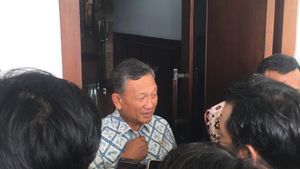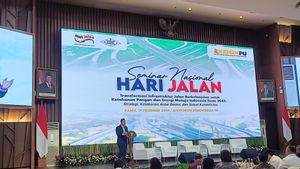JAKARTA - Meta wants to make it clear that they haven't given up on developing high-end VR experiences. The company even launched several prototype VR headsets at once.
The goal, according to CEO Mark Zuckerberg, is to create something that can pass the "visual Turing Test," or the point at which virtual reality is practically indistinguishable from the real world. That's the Holy Grail for VR fans. But for the Meta critics, it's another troubling sign that the company wants to own a reality. Even if Zuckerberg says he doesn't want to completely own the metaverse.
As Zuckerberg and Michael Abrash, Meta's Reality Labs Chief Scientist explain, creating the perfect VR headset involves refining four basic concepts.
First, they have to achieve high resolution so you can have 20/20 VR vision (without the need for prescription glasses). Second, the headset requires varying depth of focus and eye tracking, so users can easily focus on near and far objects
The third fixes the optical distortion inherent in today's lenses. Lastly, Meta needs to bring HDR, or high dynamic range, into the headset to deliver more realistic brightness, shadows and color depth.
Of course, companies need to package all these concepts into a headset that is lightweight and easy to use. In 2020, Facebook Reality Labs showed off a pair of VR concept glasses using holographic lenses, which looked like oversized sunglasses.
Based on the original concept, the company revealed today the Holocake 2, its slimmest VR headset. It looks more traditional than its original counterpart, but Zuckerberg says it's a fully functional prototype that can play any VR game when tethered to a PC.
"Displays that match the full capacity of human vision will unlock some very important things," Zuckerberg said at a media briefing. “The first is a realistic sense of presence, and that is the feeling of being with someone or somewhere as if you were physically there. And given our focus on helping people connect, you can see why this is such a big deal.”
He describes testing a photorealistic avatar in a mixed reality environment, where his VR partner appears to be standing right next to him. While "presence" may seem like an esoteric term these days, it's easier to understand once a headset can realistically connect you with friends, family, and colleagues remotely.
The upcoming Cambria Meta headset appears to be a small step towards achieving a true VR presence. While admitting the perfect headset is still a long way off, Zuckerberg shows from existing prototypes how much progress Meta's Reality Labs has made so far.
The English, Chinese, Japanese, Arabic, and French versions are automatically generated by the AI. So there may still be inaccuracies in translating, please always see Indonesian as our main language. (system supported by DigitalSiber.id)













